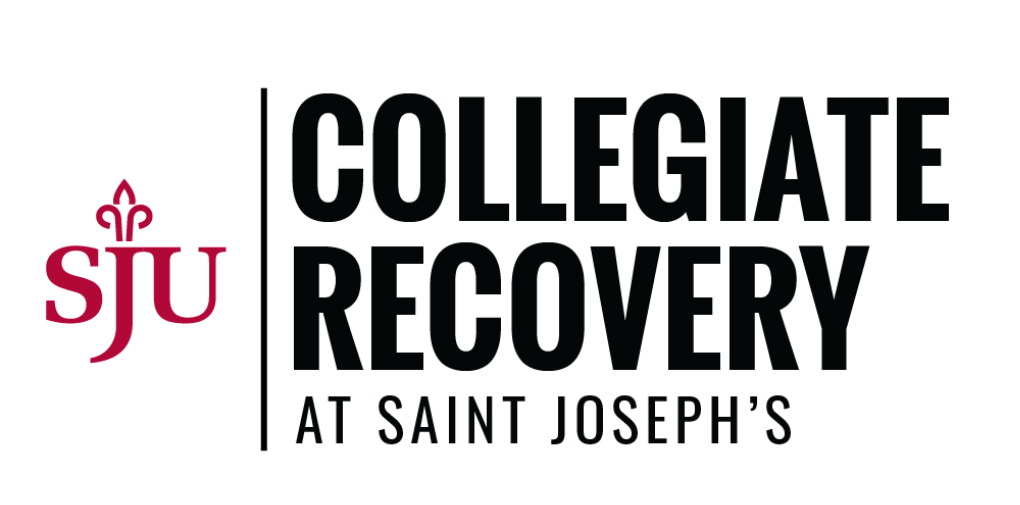2025 Regional Recovery Conference at SJU
EVENT OVERVIEW

REGIONAL COLLEGIATE RECOVERY CONFERENCE
"CARE FOR THE WHOLE STUDENT:
EXPLORING BEST PRACTICES IN COLLEGIATE RECOVERY"
Wednesday, August 6, 2025 | 8:30AM - 4:30PM
Saint Joseph’s University | Campion Student Center | Hawk Hill Campus
5600 City Ave, Philadelphia, PA 19131
contact: recovery@sju.edu
We are honored to host the 8th Annual Regional Recovery Conference at Saint Joseph's University in Philadelphia, PA. This year's event will focus on care for the whole student, while exploring best practices in collegiate recovery. Our goal is to create a space for networking and sharing ideas to enhance our knowledge and approaches in supporting young people on their journey to recovery from substance use and other co-occurring issues.
-
- Explore how a university’s mission influences the creation of recovery-friendly environments and the promotion of holistic support for students in recovery.
- Explore emerging best practices in collegiate recovery and mental health support.
- Explore the impact of stigma on the development and utilization of mental health and recovery services, both on and off campus.
- Foster a community of professionals committed to transforming student support and advancing best practices in collegiate recovery.
CONFERENCE REGISTRATION
Early Bird Registration: May 1-July 15, 2025
Professionals: $30
All Students: FREE
Regular Pricing: July 16 - August 1st
Professionals: $40
All Students: FREE
CALL FOR PROGRAMS - OPEN
PROGRAM PROPOSALS - NOW BEING ACCEPTED
Submit a proposal to present a 50-minute break-out session by completing this Program Proposal Webform.
Proposal applications are due by midnight (EST) on MONDAY, APRIL 28th, 2025.
Please contact Dr. Allison Dukes (adukes@sju.edu) or Aimee Della Porta (recovery@sju.edu) if you have any questions.
Each presentation selected will receive one free registration to the conference. Preference will be given to sessions that align most closely with the conference goals.
CONFERENCE SCHEDULE
-
Please see below for the 2025 conference agenda. Keynote and breakout session details will be posted soon.
8:30AM - 9:00AM
Registration & Light Breakfast
9:00AM
Welcome & Opening Remarks
9:10AM - 10:00AM
Morning Keynote Speaker
10:10AM - 11:00AM
BREAKOUT SESSION #1 (4 Sessions Offered)
11:10AM - 12:00PM
BREAKOUT SESSION #2 (4 Sessions Offered)
12:10PM - 1:00PM
Networking Lunch
1:10PM - 2:00PM
Afternoon Keynote
2:10PM - 3:00PM
BREAKOUT SESSION #3 (4 Sessions Offered)
3:10PM - 4:00PM
BREAKOUT SESSION #4 (4 Sessions Offered)
4:00PM - 4:30PM
Conference Closing Session
- Presentation of Student Scholarship Award
CONTINUING EDUCATION CREDIT HOURS
The Collegiate Recovery Program at SJU is currently seeking approval to offer continuing education credit hours for “SJU Regional Collegiate Recovery Conference: Care for the Whole Student, Exploring Best Practices in Collegiate Recovery.” Please check back for updates.
CONFERENCE SPONSORSHIP
Thank you for your interest in sponsoring the 2025 Regional Collegiate Recovery Conference at Saint Joseph's University. Below you will find outlined two sponsorship levels. Please see this Sponsorship Opportunities Guide for additional information.
If you have any questions or would like to explore sponsorship options, please contact Marci Berney, Executive Director of Student Support & Well-being at recovery@sju.edu or 610-660-1149 for more information.
-
$2,500 - Community Partner
- Name or company logo featured on website and digital display during conference
- Featured sponsor during Opening and Closing
- Opportunity to address audience during Opening/Welcome session (5 min)
- Opportunity to present an educational ‘Lunch & Learn’ session
- Attendance for 5 included
- Resource table
- This sponsorship includes a $1,000 scholarship for a student in recovery and an opportunity to be featured in promotional materials and media communications as a champion for students in recovery.
$1,000 - Recovery Advocate
- Name or company logo featured on website and digital display during conference
- Featured sponsor during Opening and Closing
- Attendance for 3 included
- Resource table
TRAVEL & PARKING
PARKING INFORMATION
Free parking is available for conference attendees in the Mandeville Hall Parking Lot (number 8 on the campus map).
Mandeville Hall is located on N. 54th Street near City Avenue.
SJU COLLEGIATE RECOVERY PROGRAM (CRP)
Image

| Learn more about the Collegiate Recovery Program (CRP) and the on-campus Recovery Residence at Saint Joseph's University! |
